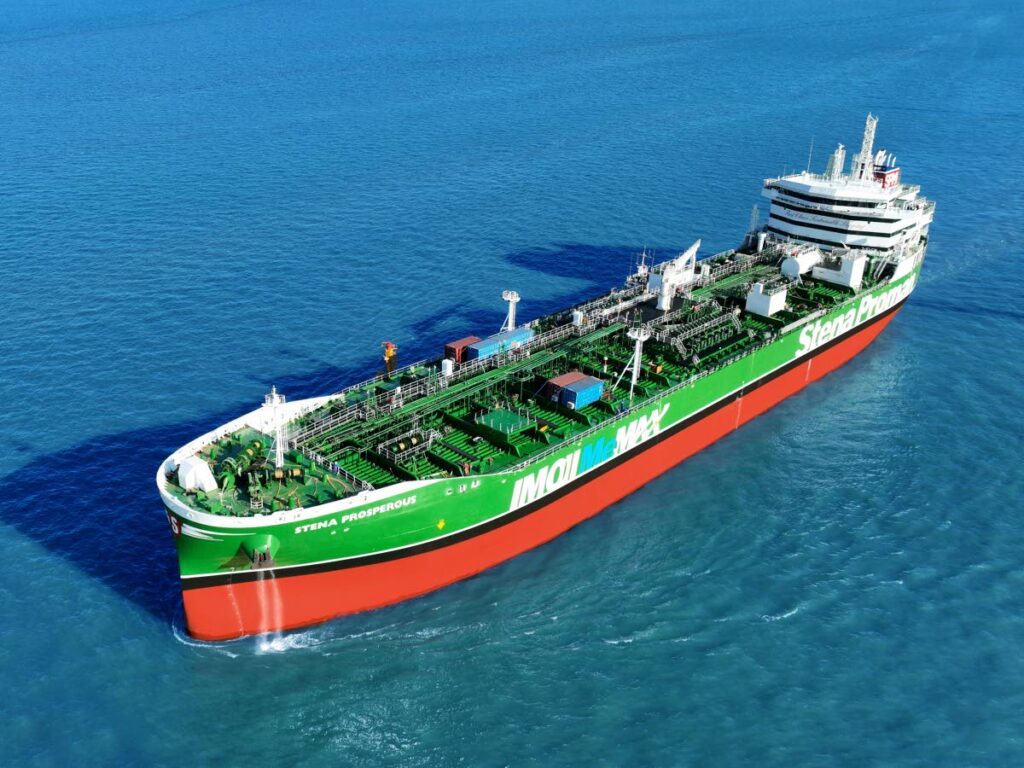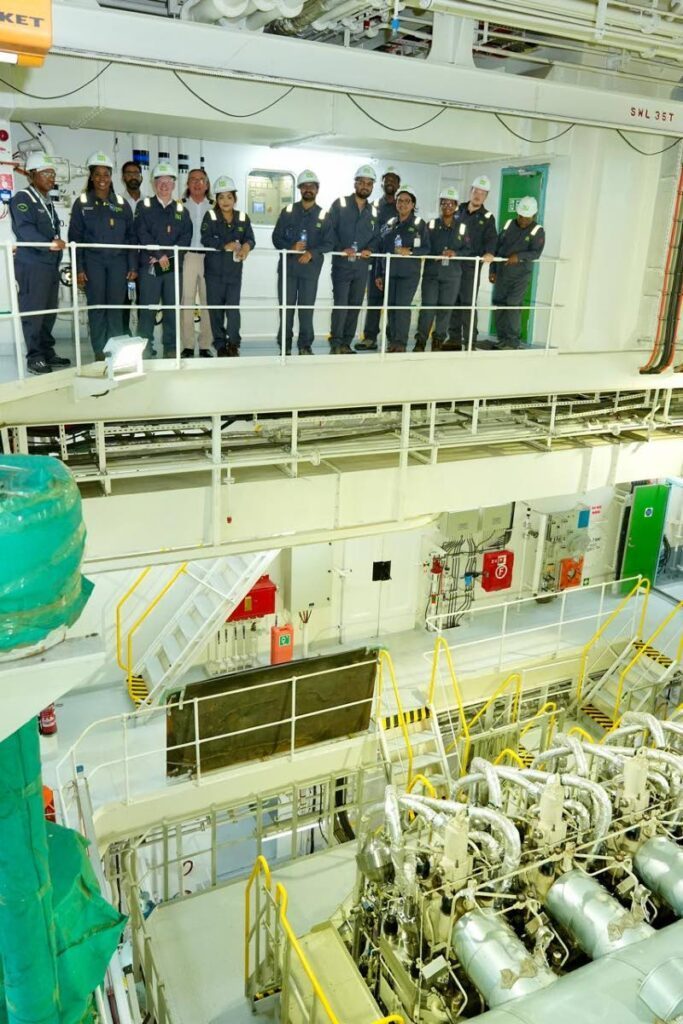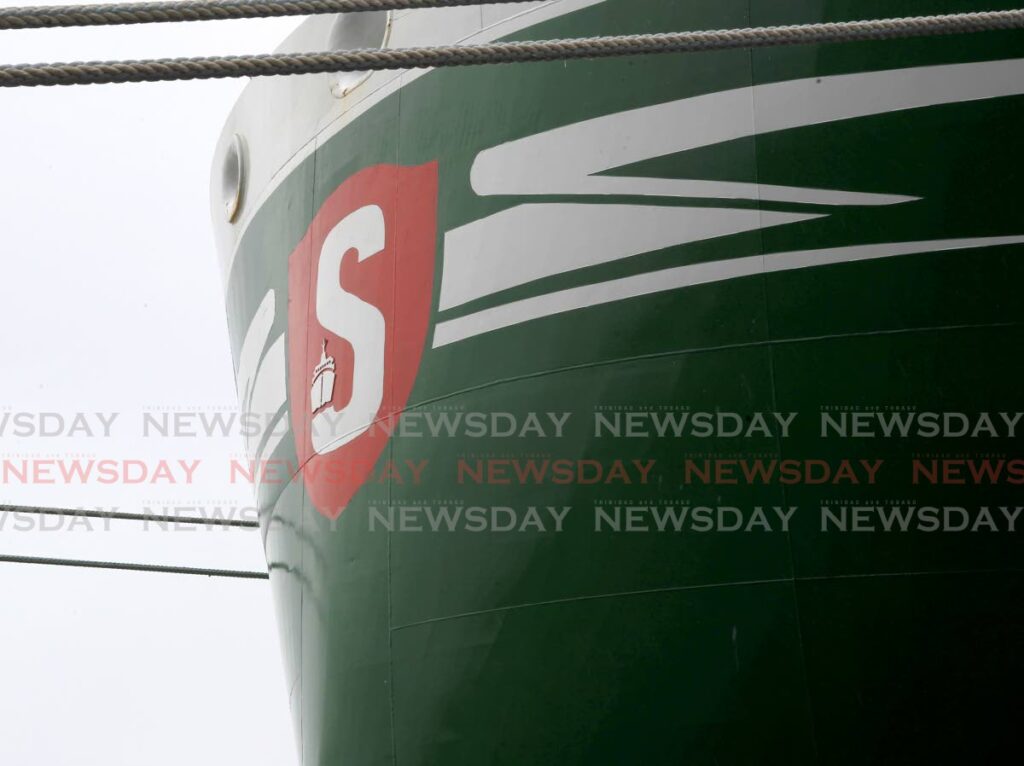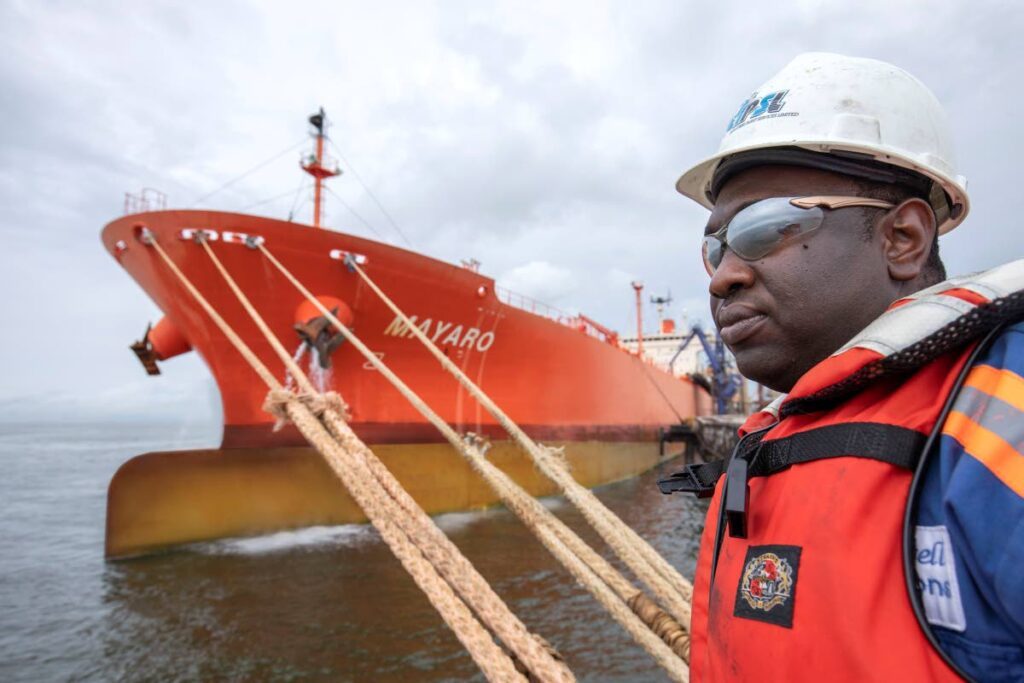Proman: 'Bunkering can create downstream value'

TT's largest methanol producer believes the increasing demand for methanol for marine fuel and the island's strategic location lay the foundation for the country to be a methanol bunkering hub which could benefit its citizens.
Proman TT has delivered over 12,500 metric tonnes (MT) of methanol as fuel for ships through the Point Lisas port over the last 12 months, and 2,100 MT in August.
The Switzerland-headquartered company is one of the world's largest methanol producers, making up to 4,000,000 MT annually across its five plants in Trinidad.
Trinidad is home to 14 of its 17 petrochemical plants and also produces ammonia, urea ammonium nitrate and melamine. It is supported by its upstream company, DeNovo, which extracts natural gas from the offshore Iguana and Zandolie fields in the Gulf of Paria.

The company is no stranger to using methanol as marine fuel. In 2019, it partnered with Stena Bulk to create six 49,900 dead-weight tonne tanker ships delivered between 2022 and January 2024.
Its latest vessel, the Stena Prosperous, bunkered at Pt Lisas on August 16.
Managing director, operations, Aleeya Ali told Business Day the investment in its shipping fleet has taken the locally manufactured gas to the US, Asian and European markets, but, more importantly, has helped encourage methanol's use as a marine fuel.
If realised, Proman's director of marketing and logistics Hanna Sukhu-Maharaj said, the country would reap the benefits.
"You have the opportunity of, first and foremost, creating downstream employment. If you have vessels that are being called to Trinidad – and it's not just employment (through) the people who are physically bunkering the vessel, but you are going to have ship handlers – you're going to have dry docking."
Although she admits a draft of 11.5 metres at Pt Lisas would not facilitate the berthing of some vessels, like cruise ships, she said Proman is experienced with workarounds such as bunkering via an offshore barge or a ship-to-ship transfer.
"If our ship is going out and passing by, once we have the necessary approvals, governmental and customs etcetera, we can do bunkering directly from our ships onto the vessels.
"It's really about creating a downstream value."
Elaborating on indirect benefits, Ali said: "If you look in the community, the entire service industry, expertise, people, jobs and an entire economy built around Pt Lisas, that is not just the direct plant and the direct employer.

"It's a multiplier effect. When you build the industry, it has a widespread effect."
Additionally, Proman's global shipping director Matthias Classen said Trinidad's strategic geographic location augurs well for attracting bunkering demand.
"It's right on the main trade line, so in between South America and the US, which is a major trade line. Also, ships going from South America to Asia, they're literally passing Trinidad. So the deviation to go east of Trinidad or west of Trinidad is minor."
According to the director of operations, the global demand is growing, with 300 methanol-fuelled vessels expected to be in the water by 2027.
However, TT's natural gas production has been in decline, with Proman plants no stranger to natural-gas shortages. Ali admitted the M1 plant on the estate was currently idled.
With these factors in mind, Business Day asked why the continued investment.
Ali said: "The product is vital, the products that we make. And so it is very important for us, not just as Proman, for us as Trinidad, to continue that investment. It is a legacy the country has built, not just in terms of the contribution of Point Lisas (and) the downstream sector to the economy. I mean, it is...in so many facets of direct and direct contribution to the economy, the employment, taxes, foreign exchange, revenues. "So it is our national interest, and it is the work of the government, the upstreamers and the downstreamers to continue the natural-gas value stream here. That is why so much effort is being placed by the government and the upstream to secure the long-term deals. So much effort is being placed by Proman specifically because we were the ones to monetise these small fields.
"So we are really looking to exploit all of the opportunities to ensure that the very important products that we make, and where Trinidad is positioned on the global market, continue."
Additionally, Ali said the company is working with the government on how it can increase its natural gas supply by accessing stranded gas fields where possible, like what was done with DeNovo.
She said the company also supports the government's efforts to secure a long-term supply of natural gas.
Green light from chambers
The Energy Chamber and TT Chamber of Industry and Commerce (TT Chamber) have welcomed the idea of TT becoming a potential bunkering hub.
Energy Chamber CEO and president Thackwray (Dax) Driver, said the country is well placed to take advantage of this business opportunity.

Photo courtesy Proman. -
"We are well located geographically, close to major shipping lines and with a fantastic natural harbour in the Gulf of Paria. There are also many world class support services available for the marine industry, given our long history in the offshore oil and gas industry.
"Methanol is a rapidly growing marine fuel and, as a major global methanol producer, TT has the opportunity to play a significant leading role in the development of this industry.
"In the first phase, methanol is being used as a fuel mainly for methanol tankers, but this will grow as other vessels are either retrofitted or newly built to use methanol as fuel," he said.
Driver added that in addition to selling methanol or other low carbon fuels, there are spin off economic benefits if vessels visit Trinidad to refuel, including sale and other supplies and maintenance services.
"Low carbon fuel bunkering is a new and growing industry that TT should be actively pursuing,"he said.
However, the TT Chamber has asked why the country does not have the necessary legislation in place to allow for methanol fuel blending in gasoline for cars.
"This would assist in lowering TT's carbon footprint, whilst also potentially saving its forex by purchasing the methanol in TT dollars," the chamber said. "We naturally have a first mover advantage with already bunkering methanol fuelled ships. This will obviously will have a positive impact on the local economy, including providing employment opportunities, of which the chamber is fully supportive."

Comments
"Proman: ‘Bunkering can create downstream value’"